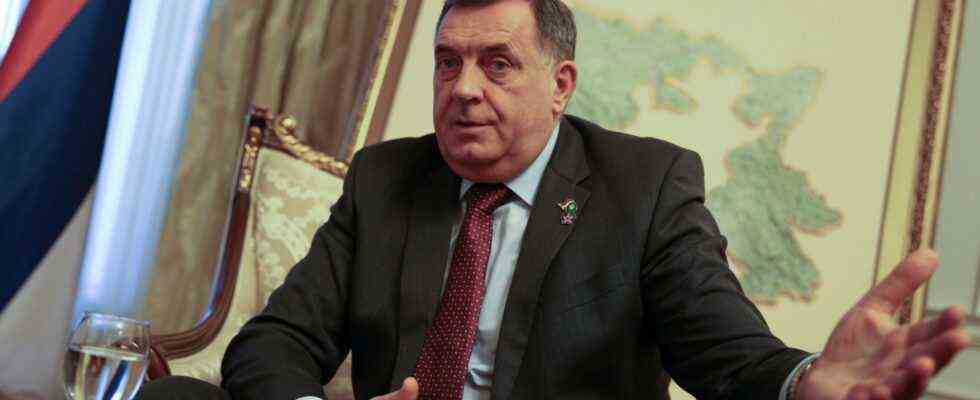Status: 11.12.2021 1:47 a.m.
In Bosnia-Herzegovina, 25 years of peace could be at stake: the parliament of the Serbian republic of Srpska has initiated the secession from the central government. The exit should be completed within six months.
More than a quarter of a century after the bloody ethnic war, concerns about impending conflict are growing in Bosnia-Herzegovina. The parliament of the Serbian Republika Srpska in Banja Luka has decided to withdraw from the army, the judicial and tax systems of the central government.
The MPs gave the regional government six months to implement the exit. Almost the entire opposition stayed away from the vote in protest, but the SNDS party’s proposal achieved a clear majority with 49 votes in favor.
Success for Serb leader Dodik
The vote is above all a success for SNDS boss Milorad Dodik. He is also a Serbian member of the State Presidency of Bosnia-Herzegovina. The leader of the Bosnian Serbs had repeatedly threatened to detach his part of the country from the central state. Now he obviously wants to actually implement this. “It is time for the Republic of Srpska to conquer freedom,” he said.
Dodik announced that it would initiate laws within six months in which the areas for which the central state is no longer recognized as being responsible will be reorganized. He left open whether he – as announced earlier – wanted to create a separate army of the Republika Srpska.
The head of the SNDS believes that the central government has illegally withdrawn powers from the Republika Srpska. This should now be reversed. Dodik, who has Russia’s support for his plans, accuses the western states of having rebuilt Bosnia to the detriment of the Serbs and in favor of the Bosnian Muslims.
Joint federation since 1995
Dodik’s venture threatens to destroy the architecture of the 1995 Dayton Peace Accords. This ended a war between Serbs, Croats and Bosniaks lasting more than three years. The treaty created two largely autonomous parts of the country, the Serb Republic and the Bosniak-Croatian Federation.
A number of state institutions are intended to guarantee the normal functioning of the state of Bosnia-Herzegovina. It is headed by a tri-presidium made up of a Croat, a Muslim and a Serbian representative.
US government worried
Already at the beginning of November the high representative of the international community for Bosnia-Herzegovina, the CSU politician Christian Schmidt, warned in a UN report: Dodik’s plan “amounts to a split without announcing it”.
The alarm bells rang in Washington when Dodik announced in September that he would build his own army. The US government has sent several diplomats to Bosnia in the past few weeks to reaffirm Washington’s backing for the country and its institutions to be a unified state.

